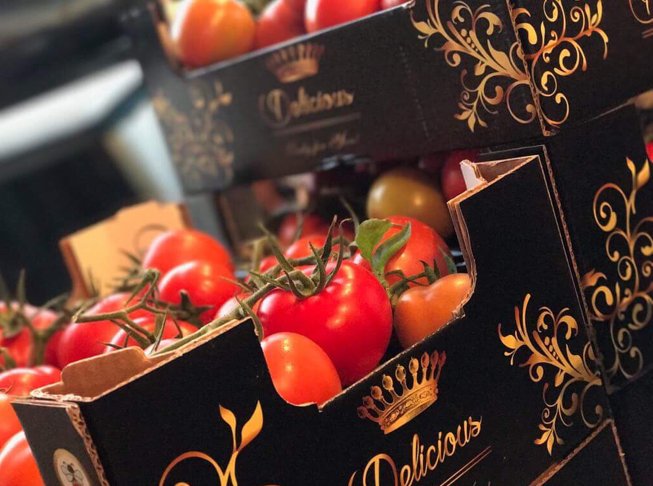
Albania’s Summer Academy For SMEs Bears Fruit
Fast-forward to 2018 and the company has grown to 60 employees, doing business with 500 Albanian farmers, exporting to 22 markets, including the European Union. ‘We are using many tactics to continue expanding our exports,’ the 27 year-old says, ‘and we continue to see expansion, particularly towards the EU every year.’
Laurat is one of 40 participants who took part in the 2018 Summer Academy for SMEs, June 25-29 in Tirana. Aimed at small businesses, startups and students in international trade and export markets, the one-week boot camp began in 2017 as a joint initiative between the not-for-profit SME Albania and Austria’s Köstinger Consulting.
Recognised as a good entry point for SMEs looking to internationalise and for its low-cost budget of just €2,500, the Academy received the ETF Good Practice in Training and the ETF Policymakers Choice Award at the recent policy-practice forum (Read about it here).
Based on survey feedback from companies, SME Albania focussed the 2018 programme on export management, covering access to financing, marketing, customs and regulations and social media strategy. Academy Director, Daniel Guçe says SME Albania are 'one team, with one goal, and one mission: to support Albanian SMEs to be competitive.' ‘That’s why we are listening to them, helping define their needs and designing a programme that helps to solve their problems.’
Laurat is satisfied with the approach, saying he learned new skills in marketing, how to get closer to clients and make faster sales. ‘In practice, my business has been very professional but I needed refine and reinforce my work and this is where the Academy has helped fill knowledge gaps,’ he says.
Business consultant and certified trainer Eneriko Hajdaraj was part of the 2017 Academy where he ran practical exercises on business planning, marketing production and negotiation. ‘This type of training is very effective and we see the results immediately,’ he says. ‘This year I was involved as a guest speaker because I want to give space to the new trainers, new methods and knowledge-sharing.’
The policy perspective and the path towards EU integration
Just like Laurat’s business, the Academy is growing fast. In the first two years, 75 participants have graduated. In 2018, the Embassies of the Netherlands and China (in Albania) and the Italian-Albanian Programme for the Development of SMEs partnered up.
Mr. Guce says in 2019 the aim is to take the Academy to 12 locations nation-wide. ‘We will go door-to-door, to the places where the SMEs are doing business. We will go to them!’
Migena Muslli from the Albanian Investment Development Agency welcomes a broader reach. ‘By going to a wider number of companies we can understand what their needs are. We support these initiatives because we want to be closer to the SMEs to know what they need to improve their business, and to be able to address this to policymakers.’
The European Commission’s renewed strategy to support Albania’s path towards EU integration includes initiatives to boost private investment, trade and SME development (Read about it here). Evisi Kopliku, Director for European Integration at the Ministry of Tourism and Environment, says initiatives like SME Summer Academy play an important role. ‘With Commission recommendations to open EU negotiations, internationalisation is inevitable. SMEs need to compete and get into European markets, and further.’
‘It is very important to prepare SMEs and help them get ready for the challenges that internationalisation brings and how to be competitive in the European markets. In this regard, the SME Academy could benefit from taking a regional dimension across the Western Balkan countries to share experience, know-how and good practice’, says Kopliku. ’I am sure we have a lot to learn from each other,’ she adds.
Background
SMEs make up 99% of companies in Albania. In 2017, the total value of Albania’s exports to the EU (mostly Italy) was €1.5 million, up 60% from 2007. The EU accounts for more than 60% of export trade. Turkey, China and the Western Balkan region are important markets. Key sectors include textiles, footwear, manufactured goods, minerals and food products.
The ETF supports the European Commission with assessments of the Small Business Act in the EU’s pre-accession region, Eastern Partnership and Southern Neighbourhood regions. This includes identification, quality assurance and dissemination of good practices.
(More on the ETF YouTube channel here)
* This designation is without prejudice to positions on status, and is in line with UNSCR 1244/1999 and the ICJ Opinion on the Kosovo declaration of independence.
* This designation is without prejudice to positions on status, and is in line with UNSCR 1244/1999 and the ICJ Opinion on the Kosovo declaration of independence.
Did you like this article? If you would like to be notified when new content like this is published, subscribe to receive our email alerts.